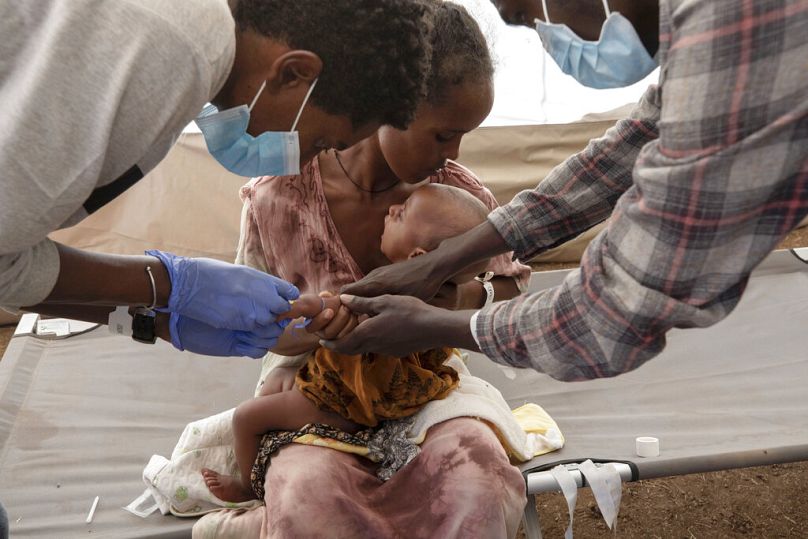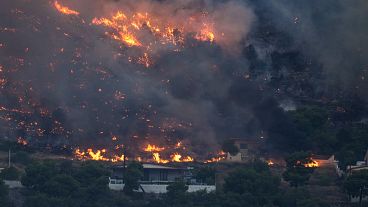Humanitarian aid charity Médecins Sans Frontières (MSF) says the impact of climate change is having devastating effects on its workers
A top humanitarian charity has revealed how climate change is dealing a “double blow” to life-saving aid attempts, as it simultaneously multiplies health risks and makes humanitarian interventions more challenging and complex to implement.
In a new report, Médecins Sans Frontières (MSF) has revealed how humanitarian workers and communities are managing to adapt to the many and complex challenges of climate change.
Much is known about the ill effects of the climate crisis on human health, but relatively little attention has been paid to the issues facing aid workers helping those who are suffering - until now.
The report, titled ‘A hostile climate: Confronting the challenges of aid delivery in the context of climate change’, is a collaboration between MSF’s Humanitarian Action for Climate and Environment (HACE) Initiative and Heidelberg University Institute of Global Health. It shows the challenges MSF humanitarian workers are facing, alongside patients and communities.
The researchers spoke to 49 humanitarian staff in 30 different countries across the globe and discovered how they are experiencing and responding to a rapidly changing environment.
In their findings, they shed light on the fact that various climate hazards, including changes to water availability and quality as well as food scarcity, are inextricably linked to global warming - and rapidly amplifying humanitarian needs.
How does climate change affect the tasks of humanitarian workers?
MSF explains that climate change is challenging the ability of humanitarians to effectively respond to communities in distress for myriad reasons.
Some of the most significant are the creation of additional logistical hurdles to humanitarian response via both damaged infrastructure and supply chain disruptions and also by creating conditions which can be hazardous to mental and physical health.
“In March [2022] there was Cyclone Gombe here, which created big problems at the community level,” an MSF humanitarian worker in Mozambique explains. “Some communities were isolated, and the MSF team was confined to one place… the bridges had collapsed, so we couldn't move the team from one region to another.”
The report, though, reveals that MSF is determined not to let climate change get in the way of its important work - and the organisation is already making great strides.
In fact, the charity’s teams around the world are beginning to adapt to the crisis alongside the communities in which they work.
The report lays bare the stories of humanitarian staff and how they are changing their modus operandi in the face of adversity.
But what are these alterations?
“I think we’ve got the opportunity to… refine our way of working,” one MSF humanitarian worker from Switzerland explains, “In Madagascar for example… doing data driven e-prep [emergency preparedness]… and surveillance, not just for infectious diseases, but for things like rainfall or crop yields, and food insecurity and malnutrition, rather than waiting for the kids with severe acute malnutrition to start turning up.”
Other plans include raising awareness, anticipatory action, resilience-building, and fostering collaboration.
‘The response does not measure up to the needs’
While MSF is certainly adapting to the many issues caused by climate change, the report also reveals that, overall, adaptive measures remain quite limited in scale and scope within MSF and in wider communities. That’s partially down to the sheer scale - current and future - of the impact the crisis has.
“Many communities and organisations remain vulnerable to the escalating risks presented by climate change, because the response does not measure up to the needs,” Léo Lysandre Tremblay, Lead of MSF’s Humanitarian Action for Climate and Environment (HACE) Initiative and a co-author of the report, says.
“This underscores the importance of more ambitious action to reduce risk, increase preparedness, and protect people and communities from the impacts of climate change,” he adds.
An MSF spokesperson explains how the report was conducted with a view to better understanding how MSF humanitarian workers, patients and communities are experiencing and responding to climate change - and to raise awareness of the struggles so many people are facing.
“MSF is sharing its findings in the hope that they assist other organisations to reflect on the health impacts of climate change on their practice, and to identify strategies and actions to minimise the impacts of climate-related health threats,” they say.
















